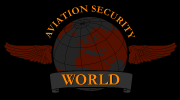Flier screening gets smarter
Good thing. As a car ferry from Canada arrived in Port Angeles, Wash., and disgorged its cargo, a sharp-eyed, veteran inspector by the name of Diana Dean noticed that one driver looked fidgety. As she asked him routine questions, he got nervous.
So she had him step out of his car as other agents searched his trunk. They found it filled with explosives. The man was convicted of terrorism and later admitted he had planned to blow up Disneyland and Los Angeles airport. The nation was spared terrorism for 21 more months.
What Dean did that day is about to play a bigger role in air security. The Transportation Security Administration (TSA) plans to train screeners at 40 major airports next year to look for certain telling traits that might reveal hostile intent or nervousness. Fliers who raise suspicion will undergo extra physical screening and could face police questioning.
That makes better sense than trying to search every one of the more than 600 million passengers who board planes each year. The technique of observing people's behavior — looking for signs such as chapped, dry lips or a pounding carotid artery — has a proven track record. For decades, "behavior-pattern recognition" has been in use at Israel's famously secure Ben Gurion Airport.
It has also been used by police at airports in Boston, Dallas/Fort Worth and Minneapolis-St. Paul, but not without drawing critics. The American Civil Liberties Union says allowing police to stop innocent travelers based on how they look or act will lead to racial profiling. The group has filed suit over police questioning in 2003 of an African-American ACLU official at Boston's airport.
Racial profiling certainly presents a risk, but not an unmanageable one, and not one sufficient to outweigh the benefit. Careful monitoring of who is stopped and why, sensitivity to complaints, and solid training can deter problems. In fact, the TSA would do well to incorporate more programs like this in its arsenal. For instance, self-defense training for flight attendants is a smart way to enhance security. Yet Congress and the TSA flubbed an opportunity to ensure effective training. In the war on terror, high-tech equipment and big spending go only so far. The rest is training smart people to use their skills to spot danger and do something about it.
USA TODAY









0 Comments:
Post a Comment
<< Home